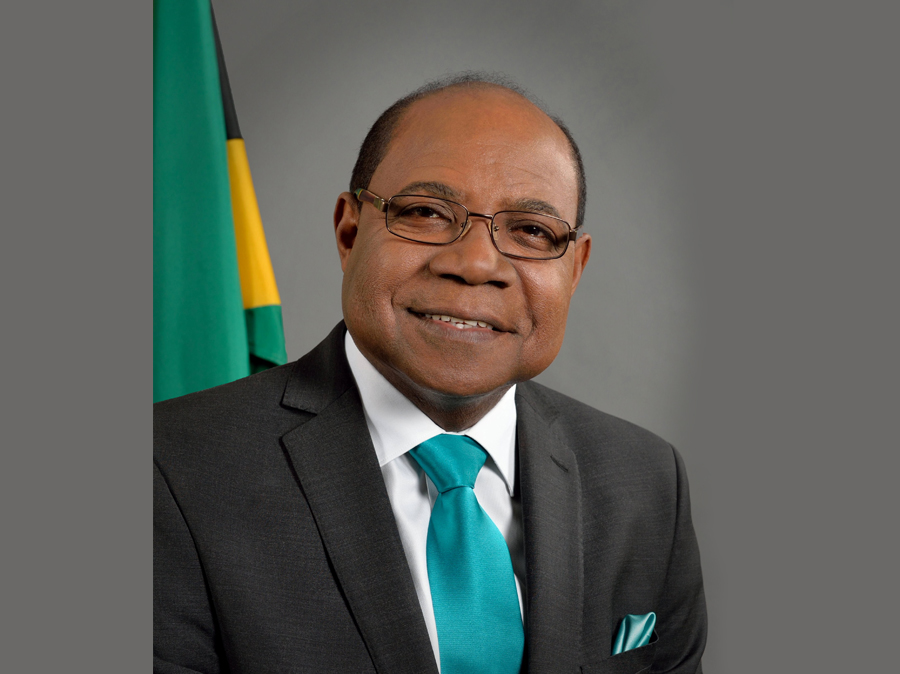
07 Jun Interview with Edmund Bartlett, Minister of Tourism, Jamaica
Mr. Edmund Bartlett tells us what his nation needs to do to keep the post-Covid recovery momentum going.
To begin today’s interview, tell us a bit about Brand Jamaica, and the nuances of what it means to be Jamaican?
Jamaica is a unique mix of our ethnic and ideological strengths. We are a people out of many one. We’re really the confluence of cultures and ethnicities across the world. Therefore, our authentic presence in the global space is driven by the fact that we are truly representative of the world community. Almost every nation on earth has a place here and we have representatives of their cultures, there styles, their values, embedded in this Jamaican mosaic. It enables us to be far more attractive as a destination to more eyes than many. To be Jamaican is really to be cosmopolitan, is to be a true part of the world community.
Therefore, it’s easy for us to find that there’s acceptance of so many elements of our own culture and practices. Our music, for example, reggae, has taken the world by storm and the impact that it has had on the global scene is absolutely phenomenal. Or athletes: the performance that they have on the world stage is amazing. Even yesterday, in Hungary, the track area was literally blazed by the colors of Jamaica; we have our top stars, women winning gold in that game, and looking to our next records. Usain Bolt is the image of athletics today in the world, a Jamaican who has the record of winning three individual gold medals in an Olympic back-to-back.
Jamaica’s brand therefore is so visible, it’s so present that it denies any argument which says that this little country is not worth seeing, is not worth visiting, is not worth investigating even further. That’s one of the big drives that make our tourism so successful: that we remain something of an anomaly to many but a point of curiosity to most. So you come to Jamaica, to see, to feel, to know, to realize, to experience. And in a lot of cases, you come to Jamaica to find yourself, because there’s a little bit of you that is in all of us. So that’s the discussion on brand.
A strong brand no doubt gives Jamaica a head-start in tourism. However, converting brand equity into national economic development and prosperity is the other half of the equation. In your view, what are the biggest challenges to maximizing this equation, and what have you, as minister of tourism, prioritized to enable tourism to be the key driver of inclusive growth?
The world recognizes the value of destinations, not always on the basis of its intrinsic values but, rather, how it is viewed in the eyes of certain large countries, certain entities, certain organizational arrangements. So, countries that are highly resourced, with a communication capacity that is huge, are likely to get a better review in the global space than a small country with limited resources and with very little access to the communication machine.
The capacity to convert that brand value into material wealth and development is restrained by those factors. When a small country like Jamaica forges its way through that, then it is really worthy of note and, for some reason, you become unassailable, for some reason you become unstoppable. That’s where Jamaica is. And as I indicated earlier, whether it is in music, athletics or sports, whether it is in beauty contests and cultures of that nature, whether it is in thought leadership, wherever Jamaica is inserted, we may not be able to produce the volumes that the world calls for, but we certainly produce the quality that the world wants, and the authenticity that the world wants. Our Blue Mountain coffee, for example, stands out as a very major beverage for coffee aficionados worldwide, among other things like our ginger, our spices and our condiments. The Jamaican cuisine is a very powerful tool because that very cuisine is a confluence of the ethnicities and cultures strengths that will come together to make Jamaica. So our food is a reflection of the food of the world, and almost every nation can come and their palates will be satisfied with the cuisine. So the capacity to convert, limited though it may be, has produced for us quality outputs, quality outcomes and quality experiences that have made our destination undeniable as a place to go, to live, to raise a family and also to have entrepreneurial persons.
Sustainability in tourism has been a fundamental driver of the global industry for several decades. There is something you said when Jamaica hosted the UNTWO Summit on Innovation Resilience and Crisis Management in January 2020 that I thought made a lot of sense, and I quote: “The response has to be not only just sustainability but resilience. It is to build capacity to be able to trap the disruptions, recover quickly from them, and build better, so that you can thrive.” Share with us your vision of the interrelationship between innovation, resilience and sustainability and how this has been applied in Jamaica during the recovery period?
We know that managing uncertainty requires agility and the ability to pivot and to find new ways of doing things and to add value to existing things. And so, to innovate became almost a second nature response. Because there’s no way you could survive the unknown unless you are willing to adapt, to change, to pivot and to innovate. So we focused on building the human capacity to understand this important dimension of management and that we can’t do it alone and we can’t do it with old and stale ideas. We spend a lot of time in Jamaica in ideas. I just launched the innovation-based tourism incubator which is about gathering ideas, from all over, on how to change what we’re doing, how to add value to what we’re doing, how to bring in new experiences that are going to respond to the passion points of people globally, so as to make Jamaica more attractive and more fashionable.
And so, that is about making young people who have no assets but have ideas have a chance to monetize those ideas, convert those ideas into material things that have a value and eventually a price. So we have to look at innovative legislation in the public sector, innovative rules that will guide how the new ideas are going to be embraced, because people don’t like change, they resist change, and laws tend to be immutable, so you have to create some living laws that can respond to changes that are taking place. And then you have to look at the financial sector. Again, the financial sector is pretty conservative, and they tend not to respond as readily to new ideas and take risks. Of course, risk aversion is negative, but it’s positive for some.
One of the biggest trends emerging in the post-Covid world is remote working. By the sound of our interview, I think I should definitely reconsider my options and move there. This phenomenon has unleashed a wave of digital nomads eager to find new places to live and work from. Countries around the world are launching new programs to attract this profile of visitor, who is more long-term and can also contribute to the local economy. As minister of tourism, what are your views on this trend and how is Jamaica approaching this opportunity?
Digital nomads, as a new demographic within the tourism space, is a profile of a particular type of persons that requires of destination and a certain level of infrastructure support. It works well where countries have the level of technological capabilities and communication links, whether it is through broadband WIFI connectivity or telephone. There are other considerations for bringing the digital nomad concept as a part of the tourism product for some countries. One of it, of course, has to do with the demand that digital nomads bring for a higher level of infrastructure for which most of the highly tourism-dependent small countries are not yet ready. For example, we spoke about broadband, which is a key thing: most countries are not covered with broadband, so the digital nomad would then be confined into only one section of the country, and perhaps that section already is over-utilized by regular tourism.
And then the issue of work permits. That now becomes another matter that is a local but important matter, because you are now working in our local space. You have to look also at the question of the treaties that may exist for double taxation and taxation issues: how do you treat with taxation for the digital nomad? And then you have to ensure that your safety and national security measures are strong, and strong enough to protect these digital nomads, because they’re not here for two or three days or three weeks, as in our tours. They have become part of your population, so you have to cater to them in the same way that you cater to your locals, by way of providing the health facilities, the infrastructure in general that would be applicable.
What is your final message for the readers of the Miami Herald?
The recovery of tourism has been going beyond our expectations. The advent of vaccines and the science behind it has given a greater level of confidence in the safety of travel. It does put more countries in a position to open their borders and also gives them a lot of hope. But it also has caused a great level of consternation among a number of countries, particularly those who have not been able to access the vital fluid, and some of those are the most tourism-dependent countries on earth. So their recovery is being stymied by the inequities that are now feature of the vaccine distribution process globally. Over 3 billion doses have been administered and less than 10% of the world is covered. Countries have in excess of their population needs, and some have also had spoilage of the valuable fluid when 90% of the world is in a difficult state because of inadequacy of the vaccine.
So tourism has a responsibility, too, for its own revival, to be a champion to create a rebalancing of that inequity in global distribution of the vaccines. I want to use this opportunity of reaching out to the entire community to be conscious of the fact that the recovery of, not just tourism, but the global economy, is not going to be just the preserve of a few countries. It has to be the responsibility of all the countries. And for that responsibility to be executed there has to be equity, there has to be fairness, and all of us have to recover together. And if we leave conscience behind, we’re setting the stage for humanitarian disaster, maybe even worse than the pandemic itself.

Sorry, the comment form is closed at this time.